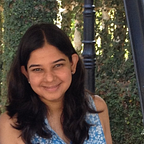One Thousand and One Nights of Life
Could the ‘The End’ be worthwhile?
Hot, sticky fingers clamour for me as I step into Dharavi, Mumbai’s notorious slum-district.
“Didi (sister), are we going to be on T.V.?”
“Did she like it?”
I know the answer; the Director’s words are burned into my memory —
One Hour Earlier:
You slaughtered our vision,” the Director said, at a humiliating meeting.
“Oh…sorry,” I replied inadequately. Slaughtered?
“Don’t show your creativity in our vision, you can change anything else you want.”
I looked down at the first film treatment I have ever written — an educational film for slum-dwelling children — slashed through with red marks.
“You slaughtered our mission,” I then heard again.
“You said that,” I pointed out, my only defence.
“No, that was vision, you also slaughtered our mission.”
The butcher. I thought to myself, I butcher with words. I had always dreamt of wielding power with my writing, yet somehow this was not precisely what I had had in mind.
“Sorry for using such a harsh word,” she smiled, trying to prove she had a heart.
I muttered something indistinct and spineless like, “It’s your film,” and stumbled out of her cabin.
I walked through the grimy hallway, my ears ringing, my face burning in pure shame. Past the stinking bathroom, and the filthy coffee machine. The tube-lights of the work area flickered, and the plaster splintered slowly off the ceiling, in little shavings on my head. There was no running water, so we washed our hands with decaying water from dirty tubs, left gaping at the open sky. Something reeked deep within — we lived like heathens and were expected to work as if we were inspired.
I stared at the cheque in my hands. It fluttered in the sharp breeze, its dark letters mocking me.
So less. So NOTHING.
This would not even cover my rent. And I lived in a hole masquerading as a ‘quaint room’, in a rat-infested building that flooded whenever it drizzled, which was often in the coastal, expensive city of Mumbai.
Familiar panic caught hold of me in its dark arms, crushing my head in.
I used to be a Chartered Accountant earning, I swear, seven times the amount of the measly cheque in my hand.
“You know the company is going through hard times,” HR had explained, with his disarming, rueful chuckle. Let us be friends, his eyes said, we are in this together.
But you…you bought a new car last week, right, my friend?
I sat at my desk and nodded a quick “No,” in answer to a colleague’s questioning look. He mouthed “Sorry,” and was about to come over, but I turned away sharply. Tears stung my eyes, I will not cry.
I will make something of my life.
I turned my laptop on and watched the tiny rainbow circle around and around, telling me to wait. Wait… wait… wait. I was sick of waiting! My friends, my old colleagues were all earning well and moving up in life, and I was…here.
Would I still be here three years from now?
Terror laid its cold fingers on my chest and was whisking me away to questions that I could not face. Had I uprooted myself from my home to live in a dump, to follow my rosy dream right to its grey ashes? I had genuinely believed I was a talented, natural writer — but was I horribly wrong?
Yet the stupid thing was, I was still writing! I was writing this.
Writing gave me peace.
In a rush of inexplicable clarity I packed up my bruised ego and headed to Dharavi — to fix the damn movie. But the minute I set foot there –
“Didi, did she like it?”
I slowly shake my head — no — and watch as they shrug and return to playing with an old tyre. Real, grimy, desperate life hits me, and I realise how in-over-my-head I truly am — I can’t even begin to fathom why these kids would want to watch films. My newfound enthusiasm quickly dissolves into embarrassment, and I start walking frantically, aimlessly — through the tiny winding lanes, the cramped multi-storied slums roofed with blue plastic sheets, past the open drains and crowded leather shops, and finally reach a bunch of kids playing lagori — an Indian pebble-stacking game. They are friendly, if distracted, and invite me to their evening drama performance — one that, apparently, their entire community gathers for. Intrigued, I ask what stories they like best, and they answer that they believe in over a hundred religious myths, but they love… Bollywood.
The tower of pebbles topples over to one team’s cheers. The reason these kids enjoy films is exquisitely clear; these underprivileged children are, in fact, teaching me one of Story’s most valuable lessons — how to look at life and all its problems, and find the courage to laugh.
One month of rewriting later — I have a small spot on a series exploring socio-economic issues in India. This time, as I stare at the only-slightly-less-insipid cheque in my hand, I decide to accept one unalterable truth: my life is not a movie. The “inspiring montage” will expand into painful, repetitive scenes that hog most of my time, and be unwatchable to anyone else. However, it’s something I need to do if I intend to succeed as a writer, and as a person.
The heartening part of this discovery, though, is — like any good movie — the End makes the entire journey worthwhile.
Actually, that’s a lie.
There is no end.
Like the best stories of all, the journey — yours, mine, these much-appropriated just human kids — is endless. Eternally enriching.
Sultan Schariar: Look into my eyes. What do you see, Scheherezade?
Scheherezade: Me. Looking at you, my love.— One Thousand and One Nights (Arabian Nights)
